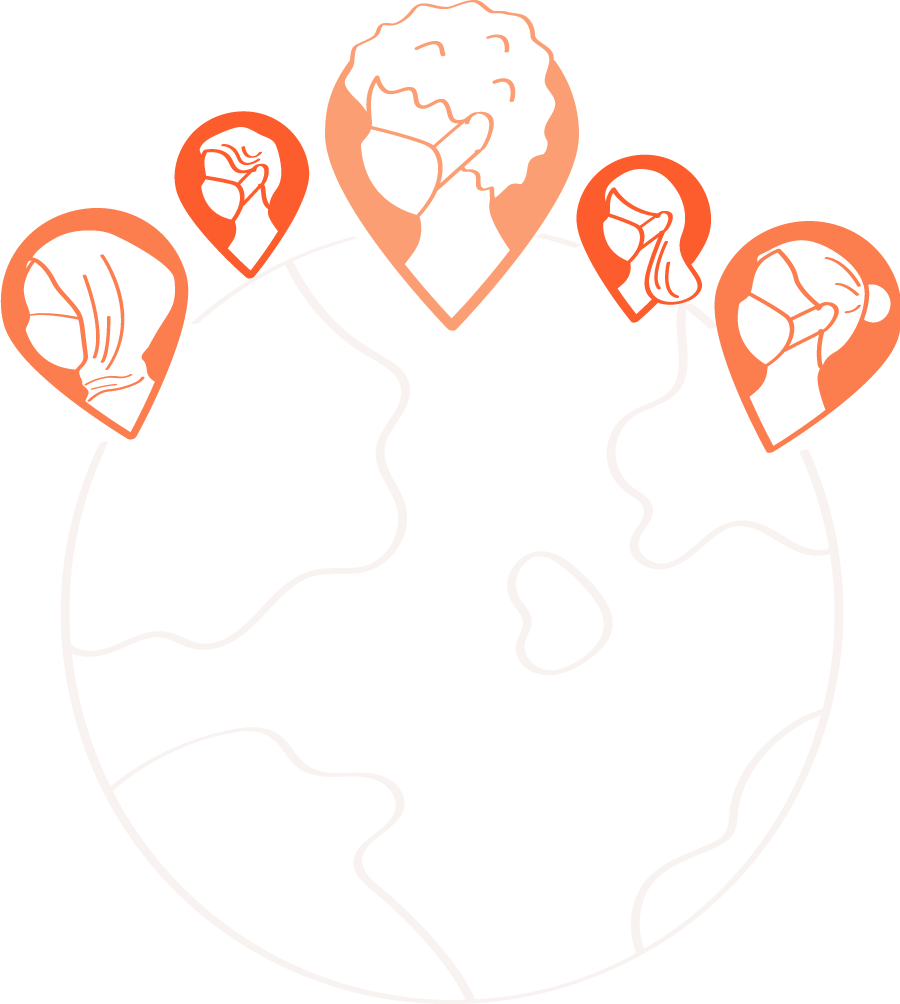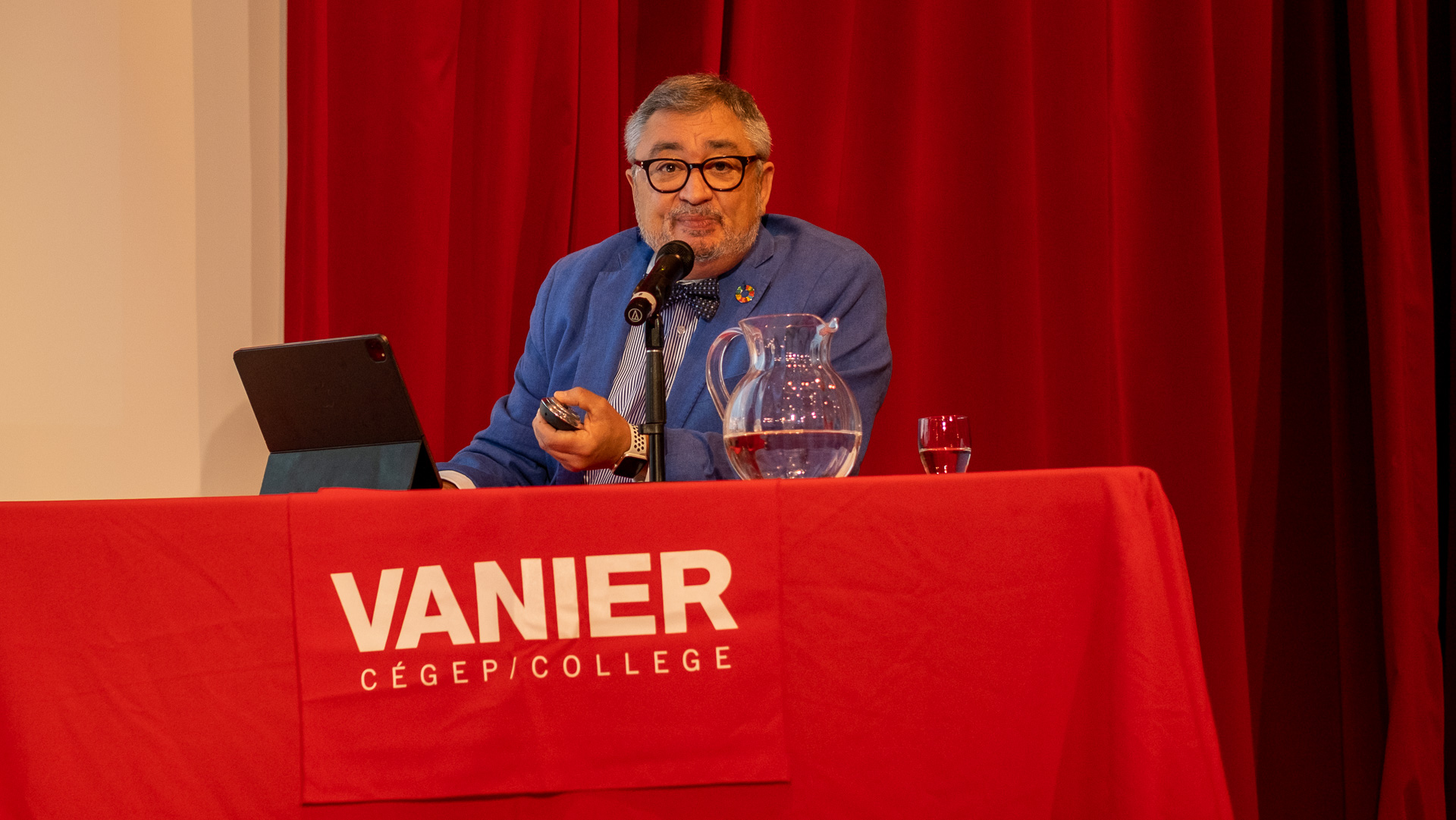8:30 – 9:40 Live in Auditorium
Everything is Connected:
Environment, Economy, Foreign
Policy, Sustainability, Human Rights
and Leadership in the 21st Century
Sheila Watt-Cloutier
Inuit-Canadian Environmental, Cultural, and Human
Rights Advocate
read more
Sheila Watt-Cloutier (sponsored by Vanier College’s: Teachers Association, Students
Association, Economics and Political
Science Department, Indigenous Circle and Indigenous Studies Certificate Program.)
Nobel Peace Prize nominee (2007) Sheila Watt-Cloutier is in the business of transforming public opinion into
public
policy. Experienced in working with global decision-makers for more than a decade, Watt-Cloutier offers a new
model for
21st century leadership. She speaks with passion and urgency on the issues of today — the environment, the
economy,
foreign policy, global health, and sustainability — not as separate concerns, but as a deeply interconnected
whole. At a
time when people are seeking solutions, direction, and a sense of hope, this global leader provides a big
picture of
where we are and where we're headed.
Watt-Cloutier is an Officer of the Order of Canada, and the recipient of the Aboriginal Achievement Award, the
UN
Champion of the Earth Award, the Norwegian Sophie Prize, the Jack P. Blaney award for Dialogue, and the Right
Livelihood
Award, which is widely considered the "Nobel Alternative".
From 1995-2002, Watt-Cloutier was elected the Canadian President of the Inuit Circumpolar Council (ICC). She
was later
elected in 2002 to become the International Chair of the ICC, representing the 155,000 Inuit from Canada,
Greenland,
Alaska, and Russia — she held this post until 2006.
She is also the author of the memoir, The Right to Be Cold: One Woman's Story of Protecting Her Culture, the
Arctic and
the Whole Planet, which was nominated for the 2016 BC National Award for Canadian Non-Fiction and the
Shaughnessy Cohen
Prize for Political Writing. In 2017, the book was shortlisted for CBC Canada Reads. Watt-Cloutier was also
shortlisted
for the Kobo Emerging Writer Prize.
In this truly globe-spanning talk, Watt-Cloutier provides a clear, meaningful, and comprehensive understanding
of the
way environment, economy, foreign policy, sustainability and human rights are interconnected, and what it
means for the
future of our planet.
Drawing upon her ancient culture, and speaking from a position of strength, not victimhood, Watt-Cloutier
brings the
realities of the Arctic―where Inuit today face profound challenges to their environment, their economy, their
health and
their cultural well-being―to light. The challenges they face are clearly connected to the industries we
support, the
disposable world we have become, and the non-sustaining policies we create. Because her Inuit culture faces
the most
extreme challenges of globalization, Watt-Cloutier speaks from firsthand experience, and couples that with her
extensive
experiences as a global leader.
L’identité québécoise, une identité au-delà de nos différences
Paul St-Pierre Plamondon
Chef du Parti Québécois
read more
Chef du Parti Québécois depuis octobre 2020, Paul St-Pierre Plamondon est titulaire d’un certificat en droit international de l’université suédoise de Lund, d’un baccalauréat en droit civil et en common law de l’Université McGill, et d’une maîtrise en administration des affaires (MBA) de l’Université d’Oxford, en Angleterre. Il a pratiqué le droit en Bolivie et en Belgique, avant de revenir faire de même au Québec, à Montréal et à Gatineau.
Il a cofondé, en 2009, le groupe de réflexion Génération d’idées. Chroniqueur pendant de nombreuses années à Bazzo.tv et au journal Les Affaires, il est également l’auteur des ouvrages Les Orphelins politiques : plaidoyer pour un renouveau du paysage politique québéçois (2014), Osez repenser le PQ (2017) et Rebâtir le camp du OUI (2020).
Alors que l’individualisme caractérise notre époque, il est opportun de songer aux avantages d’envisager le monde du point de vue collectif, notamment sous l’angle des cultures nationales.
Par leurs langues distinctes, leurs référents historiques et sociétaux propres, par leur rapport à la religion, chacune à sa façon, ces cultures contribuent à l’enrichissement, à la mise en valeur et au progrès des sociétés autant que des individus qui les composent.
La distinction culturelle québécoise, c’est une identité démocratique citoyenne universelle, et c’est incontestablement un ajout à la beauté et à la diversité du monde; pour assurer sa pérennité, le Parti Québécois milite pour la fondation d’un État moderne, qui sera à la fois un reflet de son histoire et un tremplin vers son avenir.
Global Anxiety, Values and Identity
Guy Lachapelle
Professor of Political Science and Director, Center on Values, Attitudes and Societies, Concordia University;
Vice-President, Quebec Political Science Association
read more
Guy Lachapelle, Ph.D. is Professor of Political Science at Concordia University. He is
currently the Director of the
Center on Values, Attitudes and Societies (CEVAS). He is also President of the Quebec Political Science
Association
(SQSP). He was Secretary General of the International Political Science Association (IPSA) from 2000 to 2020
and a
member of the IPSA Executive Committee from 1997 to 2000.
Professor Lachapelle will explore the change of national, territorial and continental identities of
Québécois(es). Since
the introduction 30 years ago of the Free Trade Agreement between Canada-USA-Mexico (1992), people have paid
closer
attention to the evolution of our southern neighbour not only because it is our main economic partner, but
also because
the USA has contributed – and contributes – substantively towards the construction of a new continental
identity. The
issue of our américanité has come to the forefront of our discussions; what are the values that we have in
common in
North America?
Systemic Discrimination &
Economic Growth
Moses Gashirabake
Community Leader and CEO, Mo Gashi & Partners
read more
Moses Gashirabake is the CEO of Mo Gashi & Partners. He is a business and community leader
recognized for his civic
engagement. Moses holds two degrees in common law and civil law from McGill University and an honours degree
in
political science from Concordia University. At Concordia, he earned a lifetime membership at the Loyola
College and was
awarded the outstanding student award. As part of his political science degree, he also specialized in
sustainability,
diversity and inclusion. In his Rwandan-Canadian communities, Moses has a particular passion for philanthropy
through
supporting not-for-profit organizations, post-secondary institutions, diversity and inclusion and civic and
leadership
engagement initiatives. In 2018, he was appointed to serve on the board of the Canadian Race Relations
Foundation (CRRF)
by the Minister of Canadian Heritage. He also currently serves on the boards of the Foundation for Genocide
Education
(FGE), the Raoul Wallenberg Centre for Human Rights (RWCHR) and is co-founder of the International Rwanda
Youth for
Development (IRYD).
Is there a relationship between systemic racism and economic growth? This presentation will explore why ending
systemic
racism is actually good for Canada's economy.


